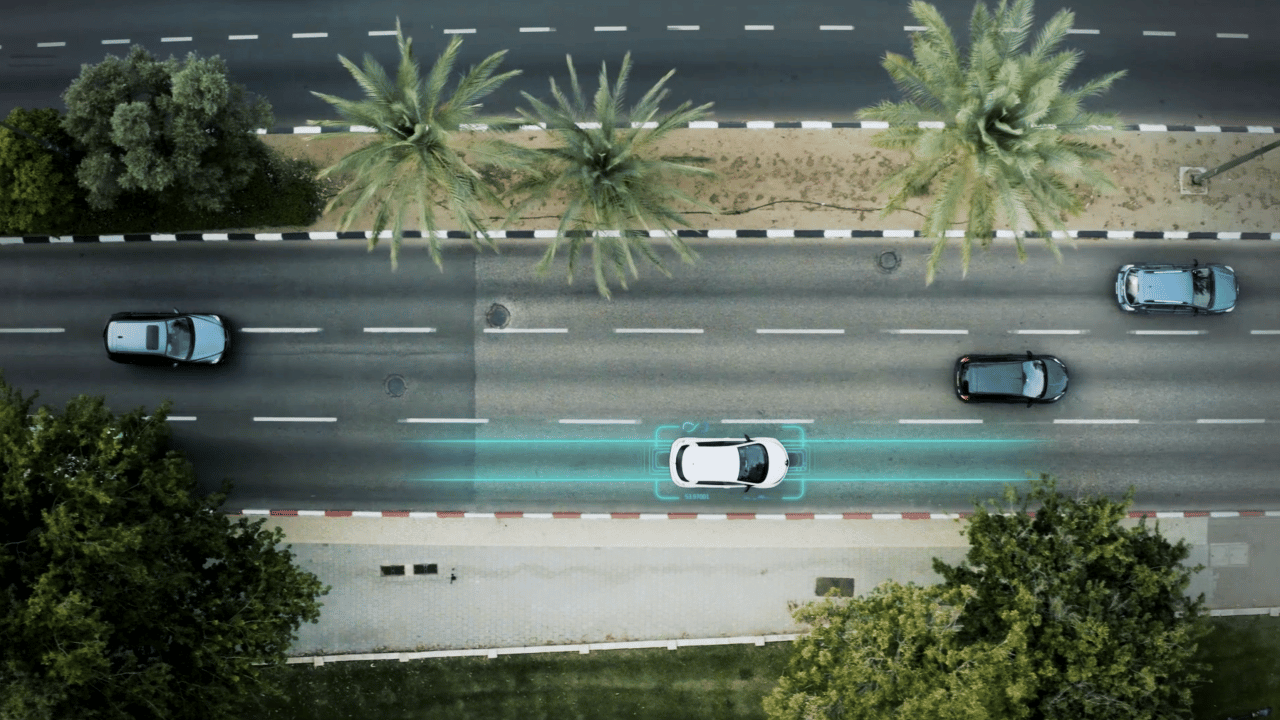Products You May Like
The company said the roadway will be fully functional by 2023 for EVs that install a special receiver. Electreon

Why you can trust us
Founded in 2005 as an Ohio-based environmental newspaper, EcoWatch is a digital platform dedicated to publishing quality, science-based content on environmental issues, causes, and solutions.
You may find yourself driving on an EV charging road in the near future.
In Detroit, inductive charging technology is being added to two short roads, a project that will be the first wireless electric road system (ERS) in the U.S. The roads will be capable of charging electric vehicles that install a special receiver while they drive. The roadway will be fully functional by 2023.
For the project, roads are embedded with coils that transfer magnetic energy to receivers mounted under EVs. That energy is then used to charge the vehicle battery, whether it is stationary or on the go.
“We’re the auto capital. We continue to push technology advancements,” said Michele Mueller, a senior project manager at Michigan Department of Transportation, as reported by Fast Company.
Governor Gretchen Whitmer first announced the Inductive Vehicle Charging Pilot in September 2021. In September 2022, Michigan and its partner on the project, Electreon, entered a 5-year agreement to scale up and manage the ERS.
Although Stefan Tongur, Los Angeles-based vice president of business development at Electreon, told dot.LA that this technology may charge slower than traditional plug-in charging stations, it can provide more continuous charging while buses, taxis, or other vehicles are on the move or making stops, meaning less time spent stopping at a station to recharge.
Over time, the technology could extend battery range and make it easier for larger commercial vehicles to electrify, since they could install smaller and less expensive batteries. Rather than paying $150,000 for batteries for each long-haul semi-truck, smaller batteries that would recharge while the truck is hauling freight would cost about $15,000 per truck.
More From EcoWatch
The pilot testing will be free, but the ERS, once implemented, could connect to drivers’ vehicles or smartphones to let them accept or deny charging. If accepted, the driver would be charged per kilowatt, similar to a traditional charging station, Fast Company explained.
The Michigan Department of Transportation and Electreon will analyze ERS benefits and consider pressure on the grid, cost of scaling up the technology and how it integrates into the state’s electrification by 2045 strategy. The partners also plan to look into pollution reduction and air quality, ensuring the ERS is widely accessible.
“The potential for electrifying roads and cities is practically endless and working together with MDOT we are reshaping the future of transportation,” Oren Ezer, CEO and co-founder of Electreon, said in a statement.
Similar projects will be tested in other states, including Florida, Indiana, Pennsylvania, and Utah, in the coming years. Earlier this year, Electreon successfully implemented its wireless charging technology in Brescia, Italy and announced its ERS is ready to scale up for commercialization.
Michigan is also looking into electrifying its fleet of state-owned vehicles by 2030.
Subscribe to get exclusive updates in our daily newsletter!
By signing up, you agree to the Terms of Use and Privacy Policy & to receive electronic communications from EcoWatch Media Group, which may include marketing promotions, advertisements and sponsored content.
